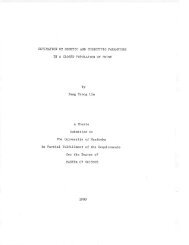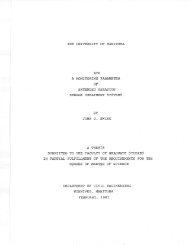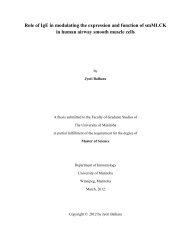Adverbial and Argument-Doubling Clauses in Cree - MSpace
Adverbial and Argument-Doubling Clauses in Cree - MSpace
Adverbial and Argument-Doubling Clauses in Cree - MSpace
You also want an ePaper? Increase the reach of your titles
YUMPU automatically turns print PDFs into web optimized ePapers that Google loves.
(1 ) Proto-Algonquian */nila/ '1'<br />
Pla<strong>in</strong>s <strong>Cree</strong><br />
Swarnpy <strong>Cree</strong><br />
Woods <strong>Cree</strong><br />
Moose <strong>Cree</strong><br />
Myd<br />
lnînal<br />
Inlaal<br />
/nîîa/<br />
<strong>Cree</strong> is a Pronom<strong>in</strong>al <strong>Argument</strong> (PA) language. The def<strong>in</strong>ition of a PA language is<br />
essentially concerned with the treatment of the central verbal arguments, namely subject,<br />
object <strong>and</strong> <strong>in</strong>direct object.<br />
In al1 languages, the verb provides certa<strong>in</strong> <strong>in</strong>formation to the arguments <strong>in</strong> the<br />
ciause. This <strong>in</strong>formation identifies the type of role that an argument fùlfils. This role is<br />
called a thematic role. or theta role. In configurational languages like English or Italian,<br />
the verb discharges these theta roles to specific stmctural positions <strong>in</strong> the sentence<br />
hierarchy. These positions, called argument positions, can be occupied by oven noun<br />
phrases (NPs) or clauses (CPs). The subject <strong>and</strong> object of a verb are identified by their<br />
placement <strong>in</strong> these positions.<br />
PA languages lack argument positions outside of the verbal complex. <strong>Argument</strong><br />
status is said to be assigned to non-overt pronom<strong>in</strong>als @os) situated <strong>in</strong> argument<br />
positions <strong>in</strong>side the verbal complex. Full NPs (overt nom<strong>in</strong>als) cannot receive argument<br />
status, <strong>and</strong> are found only <strong>in</strong> non-argumental positions. The central arguments found<br />
with<strong>in</strong> the verbal complex are pronom<strong>in</strong>als, or smallpros. Apro is a non-overt pronoun.<br />
It carries al1 of the nom<strong>in</strong>al features of person, gender <strong>and</strong> number, but it is phonologically<br />
null. These non-overt pronouns are found <strong>in</strong> Pro-drop languages like Italian, where the<br />
subject position of a f<strong>in</strong>ite verb may be null. Accord<strong>in</strong>g to the Extended Projection



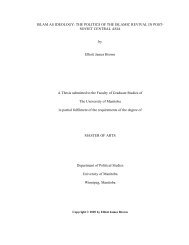
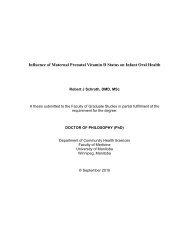
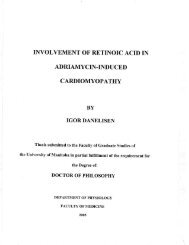
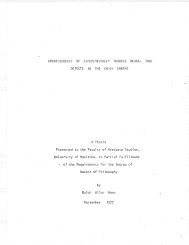
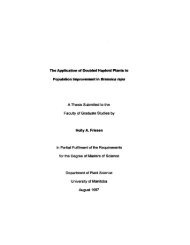
![an unusual bacterial isolate from in partial fulf]lment for the ... - MSpace](https://img.yumpu.com/21942008/1/190x245/an-unusual-bacterial-isolate-from-in-partial-fulflment-for-the-mspace.jpg?quality=85)
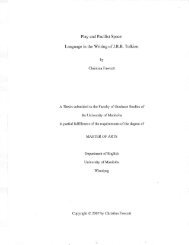
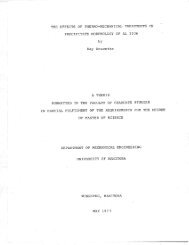
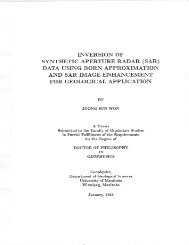
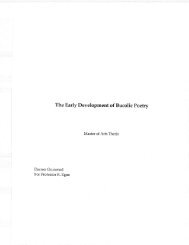
![in partial fulfil]ment of the - MSpace - University of Manitoba](https://img.yumpu.com/21941988/1/190x245/in-partial-fulfilment-of-the-mspace-university-of-manitoba.jpg?quality=85)
